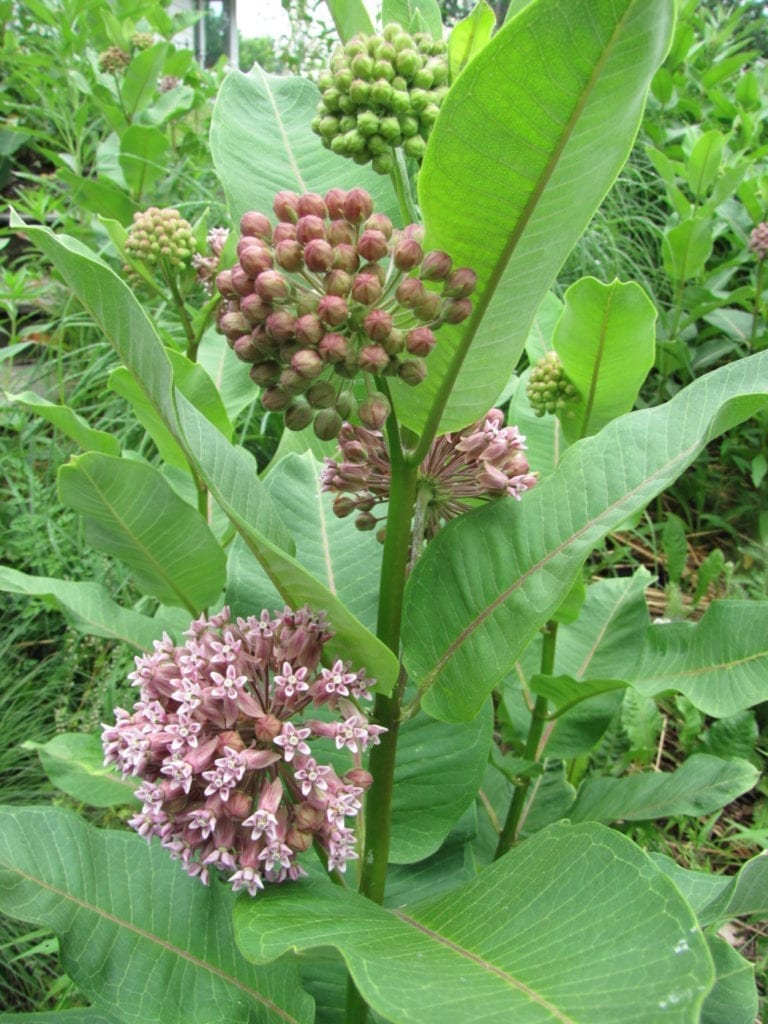News
Georg Jander receives $1 million NSF EDGE award to develop genomic tools for studying milkweed

Monarch butterfly on common milkweed (Credit: Anurag Agrawal)
BTI’s Georg Jander is leading one of ten research groups selected to receive awards through the Enabling Discovery through Genomic Tools (EDGE) program, overseen by the National Science Foundation’s (NSF’s) Biological Science Directorate. EDGE is a new program that funds the development of genomic tools and other resources for non-model organisms, thereby enabling research approaches in the scientific community.
In collaboration with co-principal investigators Anurag Agrawal (Cornell University, Department of Ecology and Evolutionary Biology), Steven Broyles (SUNY Cortland, Department of Biological Science), and Lukas Mueller (BTI, Bioinformatics), Jander’s team will develop genetic and genomic resources that will facilitate research on the molecular and chemical ecology of two milkweed species, common milkweed (Asclepias syriaca) and tropical milkweed (Asclepias curassavica). Funding from the Triad Foundation allowed them to demonstrate the feasibility of this research approach and generate preliminary data for the NSF grant application.
“Using milkweed as a model will help researchers to transition from analyzing these plants at a macro scale to looking at their molecular makeup,” said Jander. “These tools will help bridge the gap between genomics and ecology. Looking at ecologically-relevant plants can help us determine how the main similarities and differences among lineages evolved, and how that can explain the metabolic diversity that we see today.”
Valued for both its ecological importance and medicinal potential, milkweeds serve as an appealing subject for study. In natural ecosystems, milkweeds are critical for ecologically-esteemed insect species such as monarch butterflies and bumblebees. At the molecular level, they produce unique chemicals that not only protect them against pests, but also have promising human health applications.

Common milkweed flowering (Credit: Anurag Agrawal)
Jander’s team is particularly interested in the biosynthesis of cardiac glycosides and pregnane glycosides, compounds produced in milkweed that serve as chemical defenses against pest species. However, these same compounds also have been investigated for their role in treating diseases like heart disease and cancer. By analyzing the genomes of the two milkweed species, researchers will be able to identify genomic regions that regulate the abundance of these compounds and where they are produced in the plants. Their goal is to identify the as yet unknown biosynthetic pathways of ecologically and medically relevant plant metabolites.
Jander’s team will sequence the genomes of two milkweed species to develop genetic maps, improved research protocols, and education and outreach resources. The resulting genomic information and research tools will be made publicly available, so that other scientists can use them in future studies. The project’s website, www.milkweedbase.net, is currently under construction, but will feature newly-developed milkweed resources including molecular protocols, genome sequences, transcriptome data, and correlative analyses linking the transcriptomes, metabolomes, and other milkweed phenotypes.
Not only will these tools have promising uses for laboratory work, but they can also be applied to large-scale ecological studies. “Genomic data can help answer questions that can’t be fully addressed through traditional field ecology. We want to bring the use of genomics and quantitative genetics to studying non-model species in the natural environment,” said Jander.
Click here to read the NSF’s official news release.


